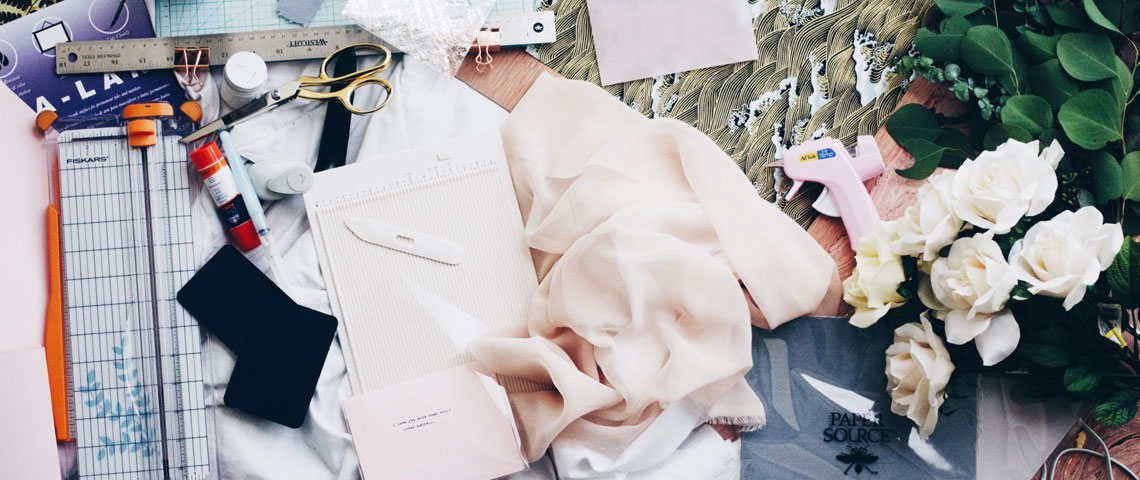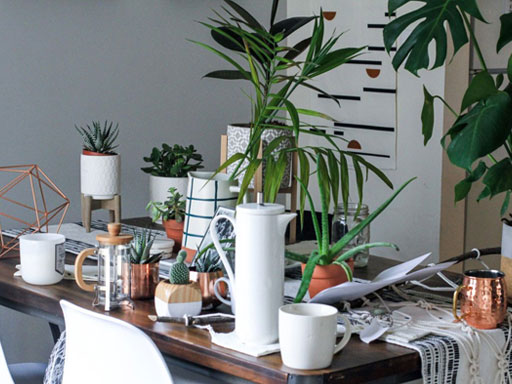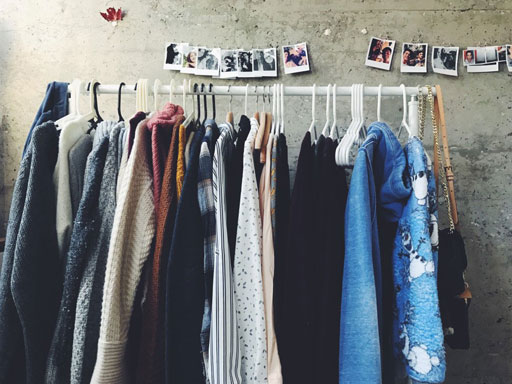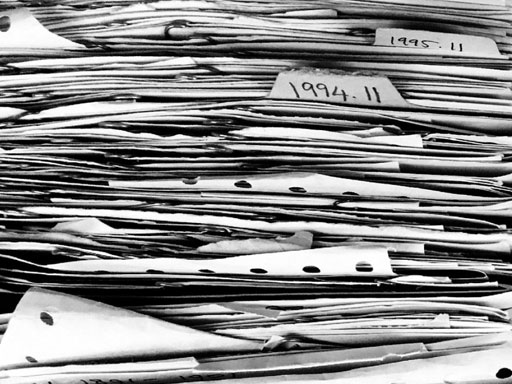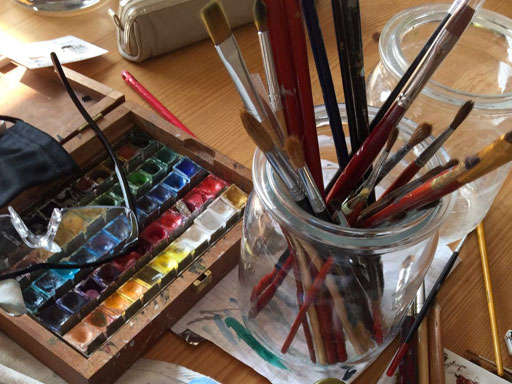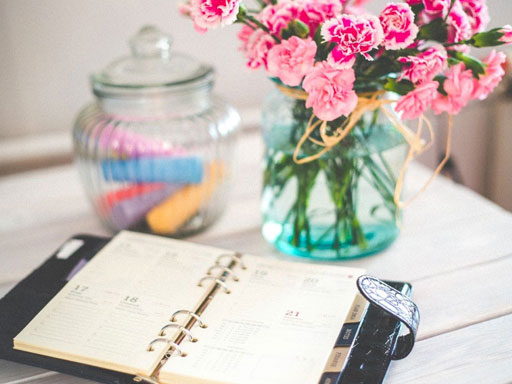Nothing can make your blood pressure rise like looking around a room and realizing that you have no idea where anything goes. You can never seem to find what you need when you need it, and the clutter is becoming overwhelming.
This is especially stressful when you're moving, whether across the city, province or country. Yet it's all too common, especially in the chaotic lead-up to departure. It's equally as common in everyday life. If this all sounds just a little too close for comfort, you're not alone. Many people, especially busy working professionals and parents of young children, have a hard time keeping everything in order at home. The answer is simple, though perhaps not intuitive: You need to get rid of that clutter.
Why Decluttering is So Important
Everywhere you look, you see suggestions on how to maintain a nice home. The right products, the right organizational tools, the right types of bins - and the list goes on.
But the truth is, if you have less stuff, you won't need as many products, tools or bins to keep track of everything. Better yet, by removing unnecessary items rather than organizing them, you will be less likely to attract more unwanted items in future, for two reasons:
- You won't have ready-made hidey-holes, like plastic tubs, sitting around.
- You'll get addicted to clear surfaces and available closet and cupboard space, and won't want to give it up easily.
Truly, decluttering is something that you can't afford to neglect in your life. Ready to savour a nice clean house... for the rest of ever? Read on to learn about our 10 favourite decluttering tips!
1. Do an Initial Pass
The temptation when first decluttering your home is to try to handle everything at once, which is the road to madness. One of the smartest things to do while decluttering is to direct your attention to one task at a time, starting with an initial pass.
The point of an initial pass is to clear your field of view somewhat. If you've gone a long time without decluttering, there's probably a lot in your home that needs to go that doesn't require emotional hand-wringing. So start there. Move room to room, scanning your possessions. If there's anything that immediately jumps out at you and you just haven't dealt with, get rid of it now. Stained shirts, broken pottery, dead plants, used Kleenex boxes, useless lamps - you name it, if it doesn't have a use, it has to go.
Toss everything that's junk, and place donatable items in paper bags or boxes in an out-of-the-way space. Do another high-level pass, then move on.
2. Get Rid of Clothes That Don't Fit
Clothes that don't fit are a setup. They're either too small (bad for the ego) or too large (never gonna wear them, hopefully). Either way, by the time you get there, they probably won't represent your current style. So get rid of everything that doesn't fit or you haven't worn in more than a year. Ditto for everyone else in the house.
The exception is children's clothes that they haven't yet grown into, or that you're holding onto because you know you'll have another baby. And of course, truly sentimental items, such as a wedding dress. (Not to be confused with every concert tee you've ever purchased.)
3. Get Rid of Gifts You Don't Care For
Lots of clutter comes into the home through the goodwill of others. While guilt tells you to hang onto everything, that's not a good idea. One of our favourite decluttering tips is to give yourself permission to get rid of gifts. If you don't use it and it's not serving a decorative purpose, then let it go. Your loved ones will understand. After all, they probably don't have every gift from you on display, either.
4. Place Papers and Documents in ONE Place
Paper is one most common types of clutter. It quickly piles up on counters and forms snowdrifts across the office floor, turning your environment into a maelstrom of clutter and making it impossible to find permission slips and receipts that you need.
Start by gathering up every piece of paper, then sorting it into "keep" and "discard" piles. Shred or recycle anything in the latter pile. For the keep papers, sort them into:
- Delivery (slips for school, forms for work, health histories for the doctor)
- Take action (bills to pay, contracts to sign)
- Long-term filing (old receipts, holiday cards, leases)
Keep these systems going, ideally through a centrally located paper organizer with trays or slots. The kitchen, the hall table and the office desk are all great places for this.
5. Clear Off Floors and Counters
Not many people know that there's an actual scientific link between clutter and stress. That's right: The more clutter in your environment, the less happy and serene you'll feel.
The upside of this is that you can trick your brain into being happier and calm simply by making your environment look more clutter-free with one of the simplest decluttering tips. The only rule is your floors and countertops must remain clear, and that the items you remove must go to one of the following: a drawer, a closet, a pantry, or a shelf.
If you can't find a good home for them, then ask yourself: Do I really need this? If the answer is no, get rid of it.
6. Specify "Catchall" Areas
This is one of the most valuable decluttering tips there is, but surprisingly few decluttering plans allow for it: Create a catchall.
The truth is, some items just can't be organized "better." Think art supplies, undergarments, or wallets and keys. Instead of tearing your hair out because they don't stay organized, try creating catchalls instead. A front-door catchall is great for chapstick, sunglasses and keys. A bathroom catchall works well for extra travel items and dentist freebies. Kitchen catchalls hold skewers, rubber bands and packs of batteries.
Allow yourself 2-3 catchalls at home (and no more!) and you'll be happier.
7. Create a Decluttering System
We live in a material world, so the fight with clutter is not a one-off. You have to remain vigilant, or before you know it, you'll once again be buried in junk mail, old clothes and tiny plastic things with no known use. Instead, set up a system in your basement or garage that includes three bins:
- Sell online
- Giveaway to friends or family
- Donate to charity
If you don't want to bother with selling, skip that particular decluttering tip. Now, when something comes into the house that you don't want, you can immediately run it out to your bins.
8. Plan Future Decluttering Chores Into Your Schedule
It's important to make time to declutter. A few weeks or even a month out, schedule decluttering activities into your planner so you have time for them and they don't pile up. That could mean sorting the medicine cabinet, culling through kids' clothes, cleaning out your decluttering bins or anything else that leads to a more serene environment.
9. Store Moving Items Thoughtfully
If you move frequently, it makes sense to keep your boxes, wrapping supplies, tape and so forth. However, these items can easily become a mountain of clutter. Therefore, one of the best decluttering tips is to keep your moving supplies somewhere dry but out of the way, like an attic or basement. Break boxes down, stack them by size and cover them with a plastic sheet to keep bugs out. Ideally, make the top of the pile flat so you can stack items on top.
10. Keep Your Storage Unit Clutter-Free
Storage units are great for those who need help organizing a small house or apartment. Think clothing racks for non-seasonal apparel, hobby equipment or outside furniture. However, a storage unit can become another headache if you don't keep it clean, so make sure to apply all of the decluttering tips above to your unit on a yearly basis at least.
If you're moving long-distance, of course, a storage unit is a great way to keep stuff organized while living farther afield. Just make sure to get a good one, with climate control and excellent security.
And that's it! Make sure to take it slow. Once you get the hang of decluttering, you'll enjoy a more peaceful environment and a new outlook on life.












